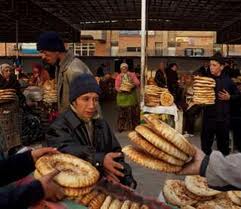Analytics
The best Experts' Views, Marks and Forecasts on Economics >>
Rules of Entry and Participation. Become a Member of Professional Society of Economic Journalists! >>

Deirdre Tynan, EurasiaNet.org - It’s going to be a gloomy year for financial authorities and householders alike in Kyrgyzstan if the macroeconomic predictions of a Bishkek-based think-tank bear out.
According to the Alternative Macroeconomic Indicators-2011 survey by theCentral Asian Free Market Institute (CAFMI), official optimism, which predicts gross domestic product growth of 6.1 percent and inflation at just 7.5 percent, is misplaced.
In December 2010, CAFMI surveyed leaders at 19 of Kyrgyzstan’s largest business and business associations including Kumtor, Gazprom Neft Asia, the Bishkek Business Club and the Chamber of Tax Consultants.
The respondents predict that business activity, confidence in the economy and purchasing power will decline. The only thing that is likely to increase is the number of job applicants per job, they said. Their forecast for what direction the consumer price index would move are equally unnerving. The cost of services could increase by 16.2 percent, industrial products by 14.4 percent, and groceries by a whopping 21.3 percent.
The potential for this burden on the average household to create problems for the new government is significant.
In December 2010 the cost of flour and bread rose by 25 percent when compared to December 2009, fruits a vegetables were 12.7 percent more expensive and meat 11.9 percent more expensive than the previous year, according to the Kyrgyz National Statistic Committee.
Seyitbek Usmanov, the director of research at CAFMI, told EurasiaNet.org the increases will mean real changes in the way people spend. Meat, he said, will be out of the question for some households now.
“I think rising food prices is the worst thing we can have, especially in rural areas were salaries come at around 2,500 soms a month. If foodstuffs go up by 20 percent, that is a big chunk of the salary. If the cost of meat goes up from 300 soms per kilo to 350 per kilo then meat becomes impossible,” he said.
Usmanov says the solutions to these problems are not typical of those formulated by an economist. Trust in the new government is paramount, he thinks. But he’s not convinced the new government has what it takes.
“The most important thing is that people have confidence in the government, confidence that government cares and that things can change. But the government has a difficult time creating trust. It’s hard when they need people who are not tainted by past scandals. What we need are new faces, not people with a track record of making mistakes,” he said.